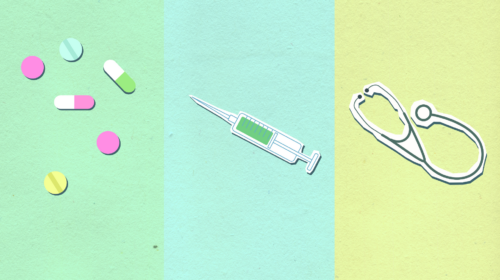Involuntary psychiatric treatment involves admitting an adult patient to inpatient treatment against their will for a defined time. Once the ink dries on a signed Temporary Detainment Order (TDO), a patient can be held in psychiatric commitment for up to 5 days or until their commitment hearing is held.
Once their commitment hearing is held, they could be asked to attend psychiatric treatment (involuntary admission via court order) or a full commitment where they may stay at the hospital for up to 30 days involuntarily or until discharged by the hospital.
If you’re considering a petition on behalf of a loved one in the Virginia court system, it’s important to familiarize yourself with Virginia law. Understand what the process entails before you decide on a course of action.
The Involuntary Commitment Process
In Virginia, steep requirements must be met before someone can be involuntarily committed. It’s a serious step to impinge upon someone’s civil liberties, so the burden of proof is very high. The process takes place in accordance with the Code of Virginia, §37.2-800 through 37.2-847.[1]
Step #1: Procure a TDO
A temporary detainment order or temporary detention order (TDO) is a court-issued order with the legal force necessary to detain a person deemed an imminent danger to themselves and others against their will for up to five days or until a commitment hearing can be held.
No TDO can be issued without a petitioner. A petitioner is usually a friend or family member who is concerned about the health and welfare of someone they love. Except in rare circumstances, a TDO is only issued after a certified prescreener takes an in-person assessment of the patient within the preceding 72 hours.
The magistrate may consider the following criteria when deciding whether to issue a TDO:
- The recommendations of any physician or psychologist licensed in the state.
- The individual’s personal history
- Whether or not they have sought mental health treatment in the past.
- Second-hand evidence
- Available medical records
- Any written statement, such as an affidavit
- Any other relevant information
If the magistrate decides a TDO is warranted, the preadmission screening report will be sent to the receiving hospital and will be entered as evidence at the commitment hearing.
Step #2: Transport the Person to the Hospital
If a magistrate decides to issue a TDO, the next step is transporting the person to the appropriate hospital.
The patient can be transported to the hospital via law enforcement personnel or via alternative means (family, friends, etc). Every attempt will be made to hospitalize the patient in the county in which the TDO is issued.
Step #3: Hold a Commitment Hearing
Within five days, a commitment hearing must be held, or else the patient is required by law to be discharged. Before the hearing, the patient will be assigned a court-appointed attorney. Due to the intrusive nature of involuntary commitment, the court takes as much precaution as possible to give the patient representation.
An independent evaluator will conduct a psychiatric evaluation of the patient. They will provide a clinical opinion on whether or not they think the patient poses an immediate danger to harm themselves or others.
An assistant county attorney represents the county and local community services board, who will likely ask for an affirmative decision corresponding with the evidence from the pre-screening prior to the TDO.
Legal Criteria for Involuntary Commitment in Virginia

The Special Justice of the Circuit Court has four options for a decision: Dismissal, mandatory outpatient treatment (MOT), court-mandated admission (CMA), and full commitment.
Dismissal
Dismissal means the Special Judge vacates the TDO, and the person is immediately discharged. They have no restrictions.
Mandatory Outpatient Treatment (MOT)
MOT treatment is where the Special Judge orders the patient to attend up to 90 days of outpatient psychiatric treatment. To issue this decision, they must find clear and convincing evidence that:
- The individual has a mental illness and will cause themselves and/or other serious harm in the near to immediate future.
- Less restrictive alternatives to involuntary commitment have been investigated and are considered appropriate.
- The individual agrees to abide by their treatment plan and has the capacity to do so.
Court-Mandated Admission (CMA)
The Special Judge is required to offer the patient the opportunity to admit themselves to voluntary psychiatric care inside a hospital.
If they voluntarily seek treatment, they must stay at the hospital a minimum of three days and then give two days’ notice before they intend to leave. They will stay a minimum of five days.
Full Commitment
The Special Judge considers two main criteria for continued involuntary psychiatric commitment in Virginia. To receive an affirmative decision, there must be clear and convincing evidence that:
- The individual has a mental illness and will cause themselves/others serious harm in the near to immediate future.
- Less restrictive treatment alternatives to involuntary commitment have been investigated and considered to be inappropriate.
The maximum length of time a person is allowed to be involuntarily committed is thirty days.
What Happens During Involuntary Commitment in Virginia?
During involuntary commitment in Virginia, a patient will receive a combination of pharmacotherapy and psychotherapy.
They will likely receive medication-assisted treatment (MAT) to mitigate some of the symptoms of the mental disorder. They will also be closely monitored by hospital staff to make sure they are not a danger to themselves or to others.
Psychotherapy might involve crisis de-escalation tactics aimed at reducing harm and even traditional talking therapies like CBT or DBT. The hope is that the patient replaces negative coping strategies with healthier alternatives.
What Happens After Involuntary Commitment in Virginia?
After involuntary commitment, a patient is discharged from the hospital. One option the Special Judge has is to order a “step-down” MOT upon discharge. This order legally requires the patient to attend outpatient services for up to 90 days following involuntary commitment.
The Special Judge must find clear and convincing evidence that the patient would benefit from further treatment but would be unable to pursue it on their own.
It is the patient’s decision what outpatient treatment center they pursue psychiatric treatment through. One such local option is Recovery Unplugged in northern Virginia.
Recovery Unplugged combines evidence-based addiction treatments with innovative music-focused practices to help their clients fully embrace the transformative power of healing over alcohol or substance abuse. They offer a range of outpatient services, including a partial hospitalization program (PHP), outpatient program, and intensive outpatient program (IOP) to help you make lasting lifestyle changes.
They also utilize evidence-based treatments such as music-assisted treatment, cognitive behavioral therapy (CBT), dialectical behavioral therapy (DBT), and transcranial magnetic stimulation (TMS).
Contact us today and let us help you or a loved one navigate this process or answer any questions you may have.

























